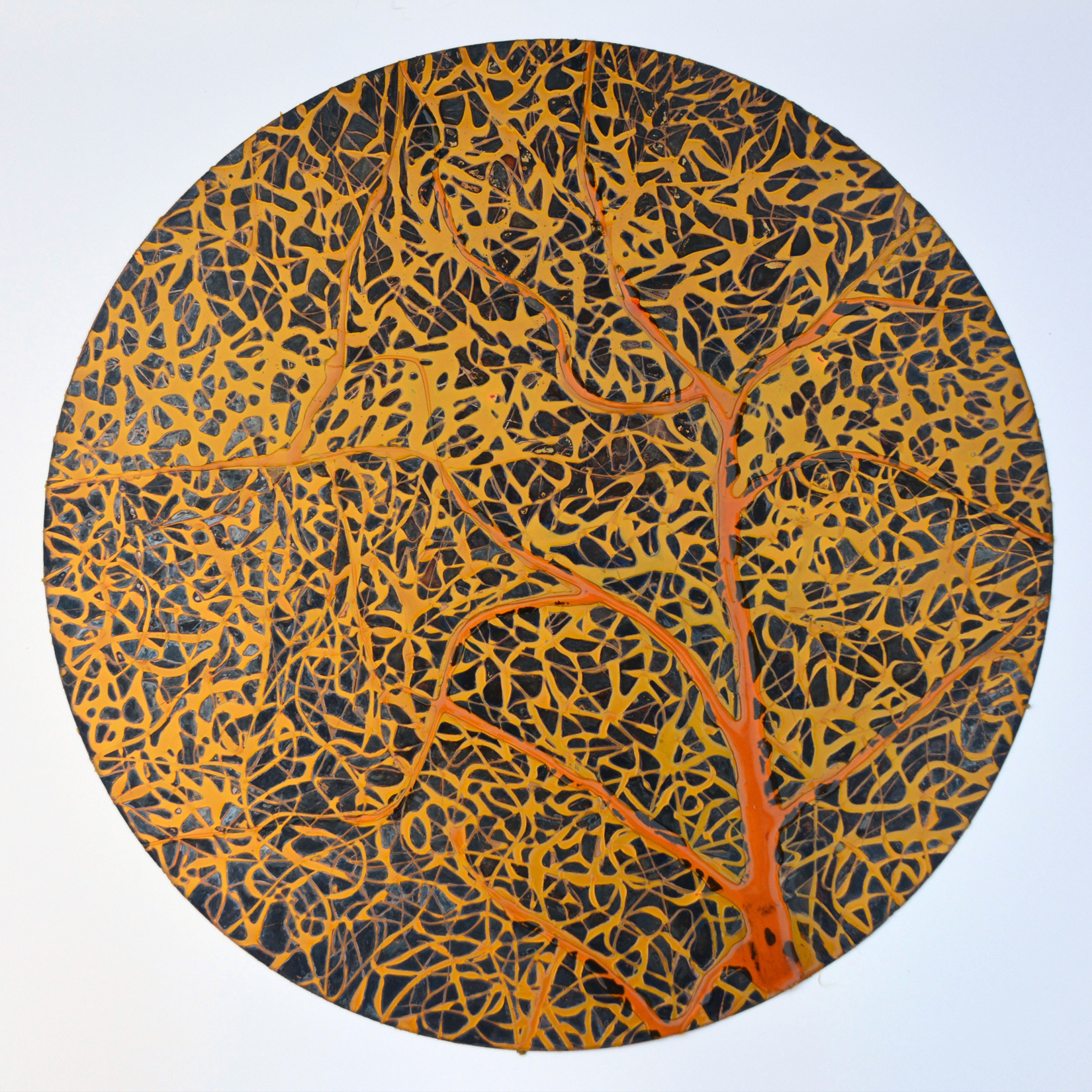Physarum polycephalum Slime Mold
Physarum polycephalum, an acellular species of slime mold, is a protist with broad geographic distribution. The “acellular” moniker derives from the plasmodial stage of its life cycle: the plasmodium is a bright yellow macroscopic multinucleate coenocyte shaped in a network of interlaced tubes. This stage of the life cycle, along with its preference for damp shady habitats, likely contributed to the original mischarac-terization of the organism as a fungus.
Physarum polycephalum has also been shown to dynamically reallocate to apparently maintain constant levels of different nutrients simultaneously. In one particular instance, a specimen placed at the center of a Petri dish spatially reallocated over combinations of food sources that each had different protein-carbohydrate ratios. After 60 hours, the slime mold area over each food source was measured. For each specimen, the results were consistent with the hypothesis that the amoeba would balance total protein and carbohydrate intake to reach particular levels that were invariant to the actual ratios presented to the slime mold. As the slime mold does not have any nervous system that could explain these intelligent behaviors, there has been considerable interdisciplinary interest in understanding the rules that govern its behavior.
Copyright: Wikipedia

Copyright: Cheryl Safren
